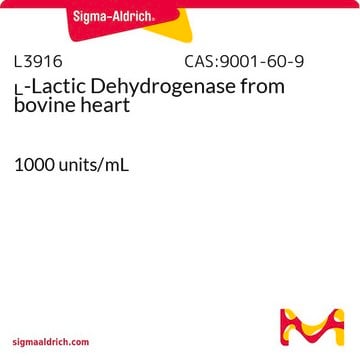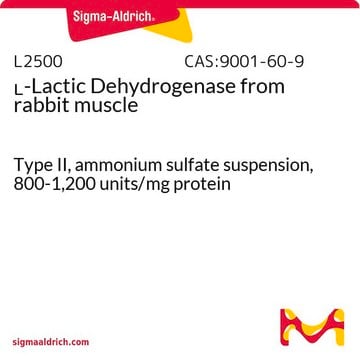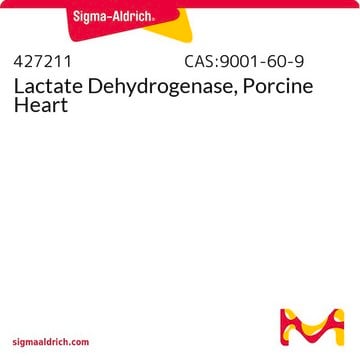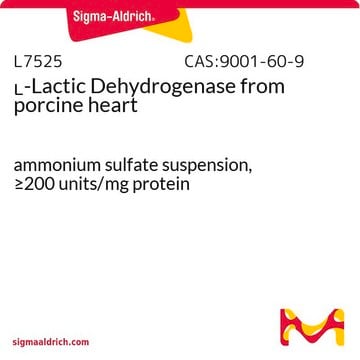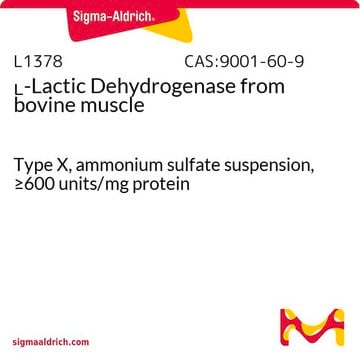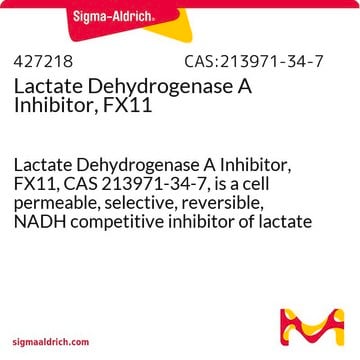SAE0049
Lactic Dehydrogenase, recombinant
from human, recombinant, expressed in E. coli, aqueous solution
Synonyme(s) :
(S)-Lactate: NAD+ oxidoreductase, L-Lactate Dehydrogenase
About This Item
Produits recommandés
Source biologique
human
Niveau de qualité
Produit recombinant
expressed in E. coli
Forme
aqueous solution
Conditions de stockage
(Keep container tightly closed in a dry and well-ventilated place)
Couleur
colorless
Numéro d'accès UniProt
Conditions d'expédition
dry ice
Température de stockage
−20°C
Informations sur le gène
human ... LDHA(3939)
Vous recherchez des produits similaires ? Visite Guide de comparaison des produits
Description générale
The gene LDHA (L-lactate dehydrogenase A chain) is mapped to human chromosome 11p15. It is a subunit of lactate dehydrogenase.In particular, lactic dehydrogenase A (LDHA) is mainly found in skeletal muscle, and for that reason is known as the M subunit. This recombinant form of LDHA has a C-terminal histidine-tag.
Application
Actions biochimiques/physiologiques
Définition de l'unité
Forme physique
Code de la classe de stockage
10 - Combustible liquids
Classe de danger pour l'eau (WGK)
WGK 1
Point d'éclair (°F)
Not applicable
Point d'éclair (°C)
Not applicable
Certificats d'analyse (COA)
Recherchez un Certificats d'analyse (COA) en saisissant le numéro de lot du produit. Les numéros de lot figurent sur l'étiquette du produit après les mots "Lot" ou "Batch".
Déjà en possession de ce produit ?
Retrouvez la documentation relative aux produits que vous avez récemment achetés dans la Bibliothèque de documents.
Les clients ont également consulté
Notre équipe de scientifiques dispose d'une expérience dans tous les secteurs de la recherche, notamment en sciences de la vie, science des matériaux, synthèse chimique, chromatographie, analyse et dans de nombreux autres domaines..
Contacter notre Service technique



